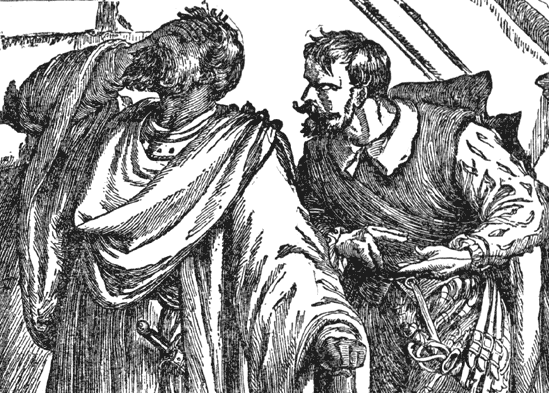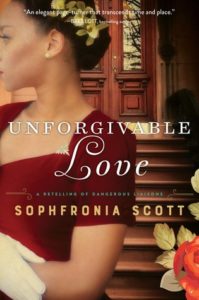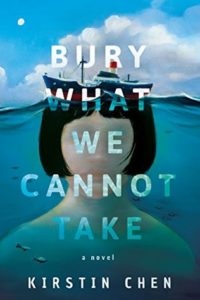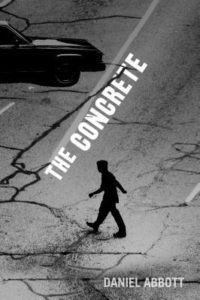
More than a few actors and writers are on record saying that villains are “more fun” or “easier to do” than heroes. And sure, on one level, this holds water: there’s something vastly entertaining about Iago’s machinations that leave Othello seeming like a square. But is it really that simple, even there? You have to care about Othello to be invested in Iago’s scheming, after all, and he’s hardly a one-dimensional, “like me because I’m the good guy” type of character.
Looking to the multitudes of other fictional examples out there, you can easily find villains that aren’t more fun or interesting. They’re just kind of there fulfilling the role, doing the jerkface-y thing they need to do for the story to have any movement forward (and not every doer of bad things in Mr. Shakespeare’s legendary array is as fascinating as Iago).
The more stories I’ve read, the more movies I’ve watched, and the more characters I’ve written myself, the more similarities I’ve found between protagonists and antagonists, heroes and anti-heroes. If heroes and heroines need flaws to be interesting and believable, there has to be something likeable in the unlikeability of antagonists and anti-heroes if we’re going to want to keep following them as readers.
Three great books I’ve read recently demonstrate this in spades, so let’s explore likeable unlikeability in action.
Unforgivable Love by Sophfronia Scott
 Sophfronia Scott’s Unforgivable Love is a fantastic place to begin. A re-imagining of Les Liaisons dangereuses/Dangerous Liasons, it’s very much in that Iago-and-Shakespearen-villain tradition of “I’m about to do something totally evil—check out how awesome I am while I do it.” In the past, I’ve admittedly avoided Dangerous Liasons for this very reason: “Yay, a devious pair of people use their skills at seduction to control and manipulate those around them. Just what I want to read after a long day in a world filled with ever more depressing news.”
Sophfronia Scott’s Unforgivable Love is a fantastic place to begin. A re-imagining of Les Liaisons dangereuses/Dangerous Liasons, it’s very much in that Iago-and-Shakespearen-villain tradition of “I’m about to do something totally evil—check out how awesome I am while I do it.” In the past, I’ve admittedly avoided Dangerous Liasons for this very reason: “Yay, a devious pair of people use their skills at seduction to control and manipulate those around them. Just what I want to read after a long day in a world filled with ever more depressing news.”
Yet Scott makes this work by inserting a little likeability (or at least a little understandability) into Mae Malveaux and Valiant Jackson, the equivalents to the Marquise de Merteuil and Vicomte de Valmont of the original. Not too much, mind—they still get their kicks out of what they can do and what they can get away with.
Some of that comes from the lives they are handed, however. The novel is set in Harlem and upstate New York in 1947, and it leverages this time and setting to let its two anti-heroes have a grounded reason for being: you can take what you want from the world, or it will take what it wants from you.
It goes further than that, however. We see enough into Mae that we can see the wounded person—how she has been twisted into what she is. We’re given this insight in a passage early on in the novel, with her messed up appreciation and desiring of love.
“Mae did want love. She didn’t care that it didn’t last, didn’t care how easily it could be broken. What she cared about was how every human being seemed to walk the earth clutching at love, but she couldn’t do the same. She knew that shouldn’t matter—she didn’t want to be so ridiculous and weak—yet she did desire love if only to have it in her hands, a rare bauble she could enjoy as she studied its strange hold on the world. But for Mae some entity always held love, ripe and shining, just out of her reach, letting her know with soul-slicing certainty that she wasn’t good enough to have it.” (pg. 32)
Now that is a distorted longing. You can relate to that while still being dismayed at the same time, like seeing a vicious predator caught in a trap. You’d like to help it, but it snaps and claws whenever you come close. And then there is that small, almost hidden bit at the very end: she doesn’t think she’s good enough to be loved. That still gets me, even though I know how Mae uses and manipulates those around her for the rest of the book.
Val Jackson’s likeability is also introduced early on in the novel, but in a different form. Val is a baseball fanatic, going to as many games as he can, and he watches as Jackie Robinson breaks Major League Baseball’s color barrier. This hits Val powerfully, some of it affecting him in ways he can’t quite make himself appreciate.
Until now, his focus has been on money and moving up in Harlem society—and getting pretty much any woman he wants. But what Jackie Robinson is doing is… meaningful. “There was something about this man and the way he was that would matter more for his people—and it would matter long after he died” (pg. 44). It puts everything Val finds worthwhile in a light he isn’t comfortable looking at directly.
This glimmer of possibility in Val comes up again and again in the novel, and it’s a major part of what made me keep reading. It’s an invaluable counterpoint as Val does some truly terrible things: he basically pulls the “Turkish ambassador with Lady Mary from Downton Abbey” at one point, but unlike the one-dimensional Kemal Pamuk of that TV show, some part of me kept caring about Val, hoping he would actually become the person he could be.
Bury What We Cannot Take by Kirstin Chen
 Mostly set on Drum Wave Islet off the Chinese coast, Kirstin Chen’s novel centers on a family in crisis during the early years of Maoist China. The father Ah Zai lives in Hong Kong and can no longer come back to his home, lest he be taken away by the authorities: he owns a factory in Hong Kong and used to run more in China, and he is suspect for his capitalistic ways. His wife, Seok Koon, is desperate to get her family out of the country and reunited with her husband.
Mostly set on Drum Wave Islet off the Chinese coast, Kirstin Chen’s novel centers on a family in crisis during the early years of Maoist China. The father Ah Zai lives in Hong Kong and can no longer come back to his home, lest he be taken away by the authorities: he owns a factory in Hong Kong and used to run more in China, and he is suspect for his capitalistic ways. His wife, Seok Koon, is desperate to get her family out of the country and reunited with her husband.
The book hinges on the actions of Ah Liam, their twelve-year old son, who does what I think most of us would find unthinkable: informs the authorities that his grandmother has smashed a portrait of Chairman Mao with a hammer. Stated like that, you would think a reader could absolutely hate Ah Liam, yet his actions are rendered in an entirely understandable way. The propaganda espoused by the communist party in school and all around him has begun to take hold, and his motivations are further confused by an adolescent crush on another girl in his class (who very much toes the party line). And then there is his relationship with his grandmother—they seem close and you feel that he does love her, but he is frustrated that she banned him from playing with the servant’s children. It strikes of a detestable snobbery, besides triggering the anger a young adolescent can have at an elder’s denial of a thing they want.
His reporting of his grandmother is also less than decisive. This is something he should do, isn’t it? He’s torn before making the decision, and he grows even more guilty as the repercussions of his actions are felt: the family was going to go to Hong Kong under the pretext of visiting Ah Zai, who is “on his death bed” (a doctor in Hong Kong provides the falsified documentation to prove this), but the authorities will now only grant three visas. Seok Koon is assured that another will probably be released “in time,” but she is left with a terrible choice. Either they lose this chance at escape, or she leaves behind her mother-in-law, her son, or her daughter, San San. Her mother-in-law is not healthy and can’t make the trip without her, nor can she be left behind, so the decision is made to leave San San, as a friend of the family will help her make the trip once she receives the promised visa.
You can see how masterfully Chen sets up her characters’ choices. Many would also find the leaving behind of a child to be repugnant, but you understand Seok Koon’s choice because of how it is cast. Her guilt and the difficulties of her situation make it entirely relatable. As we get to know Ah Zai later in the book, he too grows understandable, even as he becomes increasingly caught in the web of his own toxic masculinity (he has a mistress in Hong Kong and he has gone staggeringly into debt trying to get his family out of China). I still wanted to smack him over the head as he refused to admit his money troubles to both his wife and his mistress, but you still get why he’s doing what he is doing—he’s not one dimensional or a stereotype (something Chen said she worried about as she wrote the novel).
The premise of Bury What We Cannot Take alone is enough to hook you, but it’s the precise, detailed rendering of Chen’s characters as they make good and bad decisions that keeps you reading. Likeable and yet unlikeable at the same time.
The Concrete by Daniel Abbott
 Set in the impoverished southeast side of Grand Rapids, Michigan, and often as hard, harsh, and gritty as the material evoked by its title, there were times where I felt as ground down as this book’s characters did. They struggle mightily under the weight of some terrible decision-making, too: infidelity, substance abuse, drug dealing, stripping, and even murder are all contemplated or committed in its pages.
Set in the impoverished southeast side of Grand Rapids, Michigan, and often as hard, harsh, and gritty as the material evoked by its title, there were times where I felt as ground down as this book’s characters did. They struggle mightily under the weight of some terrible decision-making, too: infidelity, substance abuse, drug dealing, stripping, and even murder are all contemplated or committed in its pages.
But this book is so lived in. Even under the weight of that depressing list of choices there is a glimmering of life—the glint of a yellow dandelion pushing its way out between cracks in a sidewalk, the little longings and dreams of the characters that keep them going.
Though there are no classic villains in this novel, Cesar Bolden is probably the closest. A drug-dealer with a magic touch, Cesar somehow evades notice by the authorities even as his hold over the southeast side of Grand Rapids seems complete. When a venture into the music business with a former music star goes south, he simply diversifies by making her the star of a porno. Nothing seems to go wrong for this man, even as you deeply despise him for who he is.
Yet part of this despising is created from how you come to understand him. I never liked him, but his life made me sad and angry at the same time because I so completely got who he was. His mother struggled with depression and committed suicide in the bathtub. Cesar is the one who finds her, so you get why he reacts as he does when the former music star he has a child with says she can’t handle being a mother:
‘You don’t know if you can do this?” he asks. Cesar takes a long pause before speaking again. ‘Bitch, you don’t have a choice.'” (pg. 107)
It’s true on some levels. She’s a parent and should not abandon her own kid. But his hostility in the confrontation? It’s the last thing the former music star needs to hear in the midst of her own struggles with substance abuse—it’s no surprise when she leaves Cesar and her son behind not long after.
This is Cesar at his core. While he treated the mother of his child terribly, he loves his son completely and totally. Enough so that he knows he shouldn’t be the one to raise him, giving him up for adoption. This complication of caring so much for someone yet letting them go to give them a better future is one you can’t forget—even as you remember that Cesar Bolden is rarely up to any other good, selling drugs to others and making sure he always comes out ahead.
A Character Is a Character…
Is it safe to say that regardless of their type, interesting characters are well-rounded ones? Or at the very least, something beyond the surface of a knight in shining armor or a plotting murderer twisting their mustache? Even classically villainous characters from literature like Iago or Rigaud from Little Dorritt (who was played with terrifying aplomb by Andy Serkis in a 2009 BBC adaptation) end up having more nuance than the mere glee they seem to take in their misadventures. Whether it’s likeability or a bit of understandability, those on the darker side of the moral scale require a bit of one or the other (or both) if they’re going to linger beyond the pages they are contained in.
